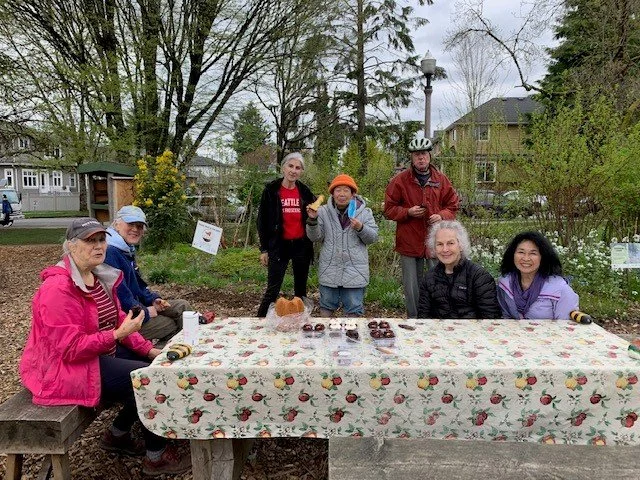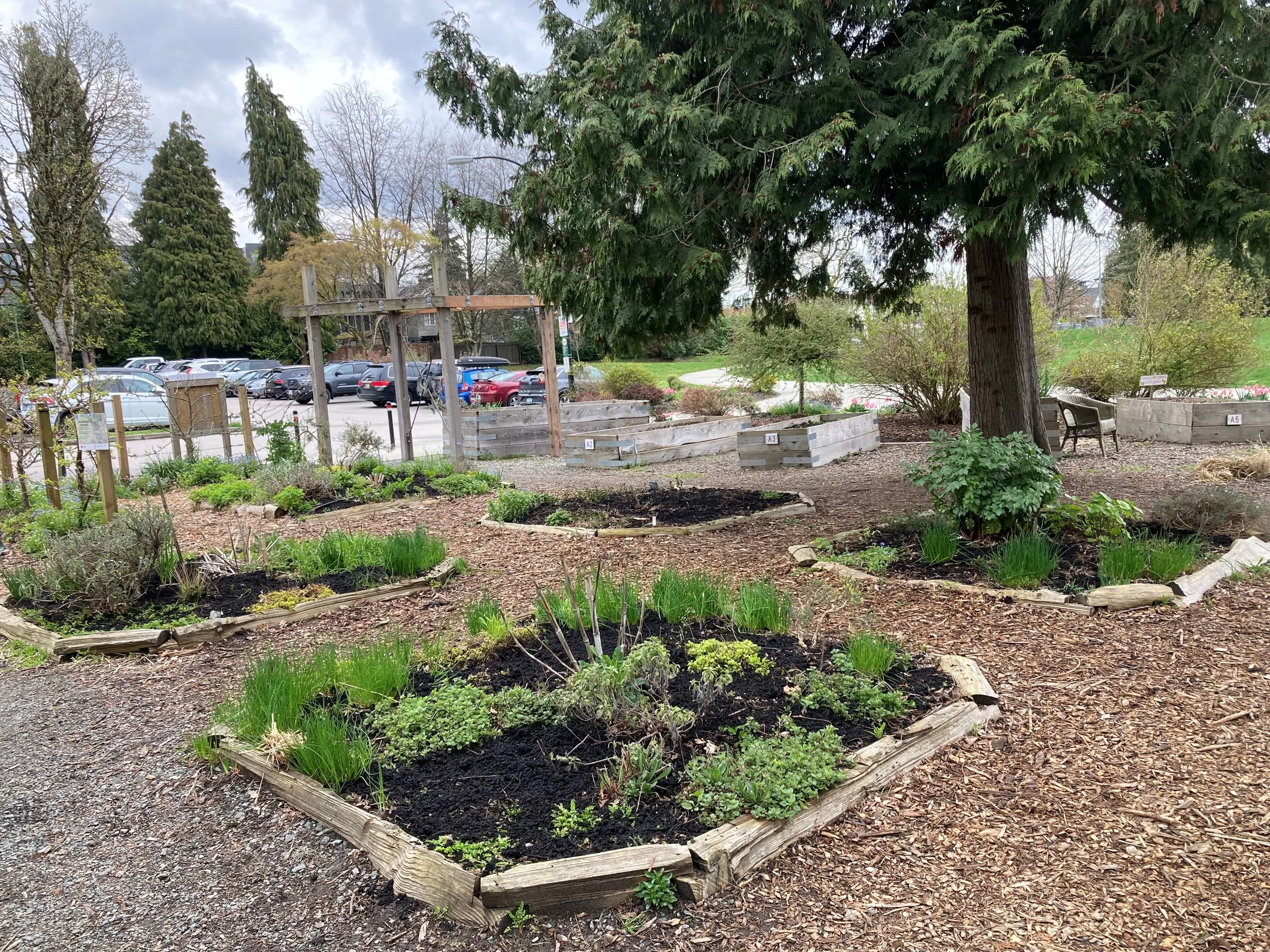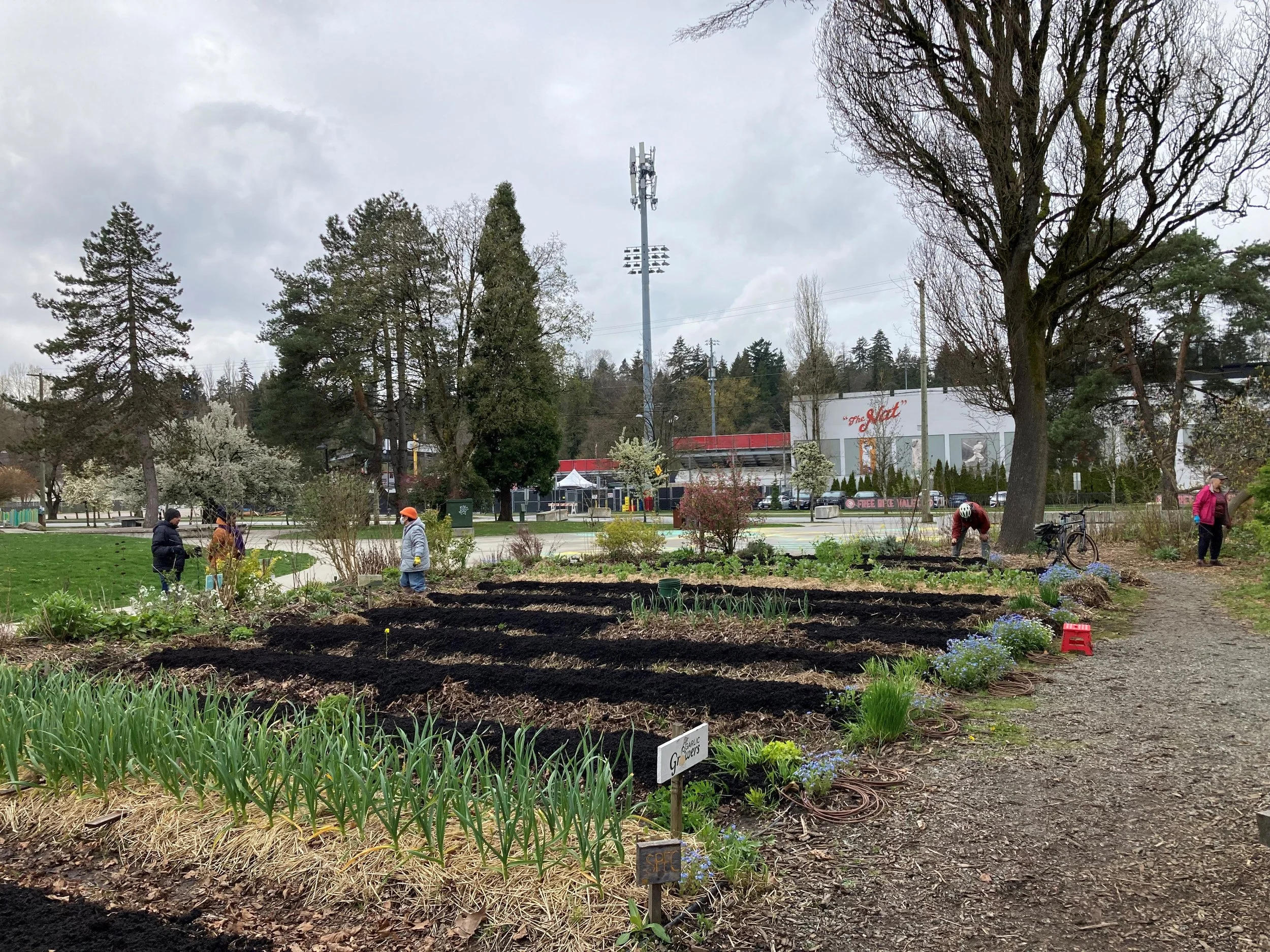By Alex Kaiser and Angela Hoy
Sign up to join a guided work party here! No experience necessary and all are welcome.
Our April 26th work party started with some exciting new guests in the garden, 50 Mason Bee cocoons!
We were lucky to get the cocoons from the Vancouver Parks Board and got to work installing the houses after a brief intro to mason bees by Helen Shim and Joe Sadowki.
Mason bees have a really interesting life cycle and niche, and are extremely useful in an orchard setting because they are very efficient pollinators, even more so than honey bees and prefer the flowers of a lot of the fruit we grow including things like salmon berries!
The females collect tons of pollen to use as a food source for their young, so this means visiting and pollinating a ton of flowers! They are called mason bees because they use clay to seal the holes of cavities after they have laid both male and female eggs inside, along with their little cache of pollen to feed their young larvae. To make sure they have clay, we’ve provided some in a small bucket with water close to their tubes.
Mason bee cocoons
Helen and Joe
The newly positioned mason bee home mounted on the back of the shed
The rest of the session consisted of taking back mulch that had been on some of our beds over the winter. This was in preparation for our compost delivery at the next work party.
It was also a special occasion, as we celebrated Angela Hoy’s birthday today.
Happy 80th birthday Angela!!
On the Apr 30th work party, there was a bit of drizzle at the beginning, but this didn’t prevent us from distributing a large pile of compost onto the veggie and herb beds, with the help of an enthusiastic team of garden volunteers.
We chose a fish enriched compost from My Garden Bag (Ground Effects) because of its high nutrient and carbon content, which is really visible with the black colour when wet. Another perk is that there aren’t any bits of shredded plastic or fruit stickers to pick through like other companies that use municipal compost. In a public park setting where we are growing food, it’s important to us to have high quality, clean compost.
We made sure larger amounts were put in beds designated for brassicas and squash but less on beds for any legumes, since they fix their own nitrogen and don’t need the early season boost as much. A good amount was also added to our herb beds and raised beds as they needed some extra love as well.
All in all a beautiful and productive day in the garden!
Our compost pile
Herb beds amended with compost
Garden beds amended with compost

















